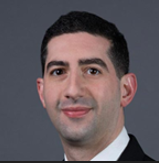Dr Zachary Solomon: The Role of Robotic Assistance in Modern Cardiac Surgery
Dr Zachary Solomon: The Role of Robotic Assistance in Modern Cardiac Surgery
Blog Article

Cardiothoracic surgery the same as those performed by Dr Zachary Solomon has always been at the lead of medical advancements, mixing accuracy, skill, and engineering to deal with situations of the heart, lungs, esophagus, and different organs in the thorax. In the last few decades, that field has observed innovative innovations and practices that have considerably increased individual outcomes, recovery occasions, and over all standard of living, in accordance with Doctor Zachary Solomon.
The Development of Cardiothoracic Surgery
Cardiothoracic surgery has come a long way from its early days. The very first successful center function, done in the late 19th century, laid the inspiration for an changing specialty noted by quick advances. By the mid-20th century, the development of the heart-lung machine permitted surgeons to do complicated open-heart procedures. Nowadays, the discipline is growing with ongoing study and technical innovations.
Minimally Unpleasant Surgery
One of the most amazing improvements in cardiothoracic surgery could be the arrival of minimally invasive techniques. These techniques in many cases are performed through small incisions, reducing stress to your body and selling faster recovery. Some critical minimally unpleasant practices contain:
• Robotic-Assisted Surgery
• Video-Assisted Thoracoscopic Surgery (VATS
• Transcatheter Aortic Valve Alternative (TAVR
Image-Guided and Computer-Assisted Surgery
Sophisticated imaging technologies and computer-assisted techniques have somewhat increased the precision and safety of cardiothoracic procedures. Improvements in this area include:
Increased Recovery Standards
Improvements in perioperative treatment have led to the progress of Enhanced Healing After Surgery (ERAS) protocols, which try to enhance preoperative, intraoperative, and postoperative treatment to enhance recovery.
Potential Directions
The continuing future of cardiothoracic surgery is promising, with continuous study in to:
• Base Cell Treatment: Discovering the potential of stem cells to correct and create broken heart tissues.
• Artificial Intelligence (AI): AI-driven analytics may aid in examination, operative preparing, and outcome forecast, resulting in more personalized and powerful treatments.
• Nanotechnology: The applying of nanoparticles for targeted medicine delivery and minimally invasive treatment options.
Conclusion
Cardiothoracic surgeons like Dr Zachary Solomon Philadelphia remains to drive the boundaries of what's possible in medicine. With the ongoing progress of impressive methods and technologies, patients may enjoy safer procedures, shorter recoveries, and greater over all outcomes. The constant quest for brilliance in this field underscores the responsibility to improving the quality of life for those with cardiothoracic conditions.
Report this page